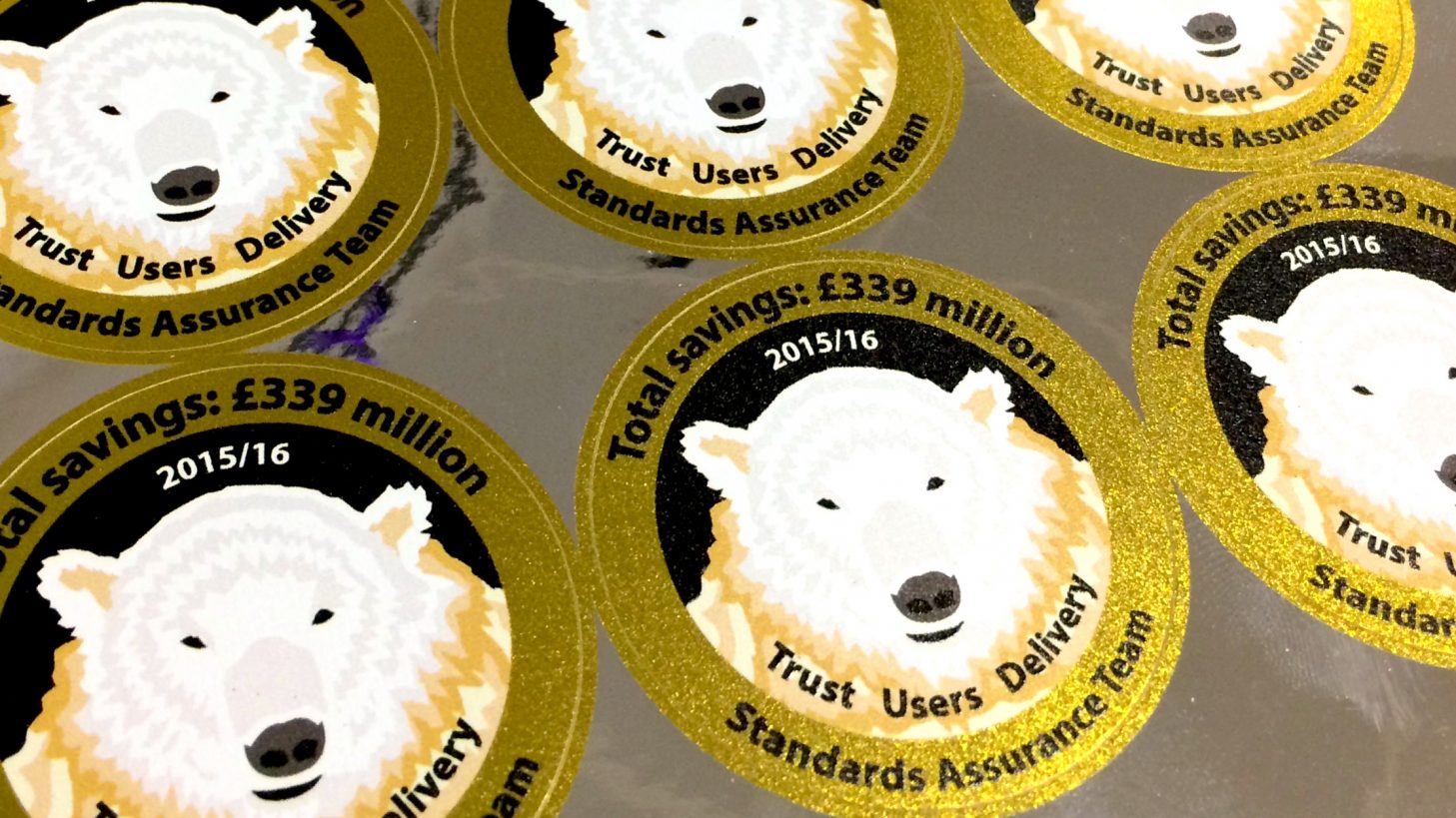
It is said that users don’t care about the structure of government. They don’t care which department does this or which agency does that.
In the Standards Assurance team we have the same approach. We don’t see technology projects in isolation from the rest of the department, or government. We look at them and ask: how can we make this better? We have a mandate to help and we will.
We are incredibly passionate about saving money by supporting great technology projects. About using our cross-government perspective to uphold the standards that will enable government to transform.
This year, by working collaboratively across government, we have demonstrated our value.
What we achieved
We help departments through digital service assessments and spending controls.
For controls, last year’s published savings figures set a precedent. This year, our team of 9 people, working with all central government departments, is proud to state confirmed savings of £339 million for the 2015 to 2016 financial year.
This figure works out as roughly equal to 5 hospitals, 19 new schools or 10,889 police officers.
What this means for departments
These are not just savings delivered by the Standards Assurance team. These are savings for government departments.
More importantly they are a testament to departments using government's standards: the Technology Code of Practice and the Digital Service Standard. They ensure departments and their service teams have flexibility in their technology choices, meeting their needs without being locked into long and costly contracts.
We’re not finished yet
It’s not about making existing things a little bit better: it’s about completely rethinking what we do and helping government to do it.
The next question naturally is: how? It’s about supporting government teams to build better services for less. To disaggregate contracts, to make use of Digital Marketplace appropriately for buying technology, to build prototypes instead of writing long procurement documentation, and aligning with the Technology Code of Practice.
We’ll be talking more in upcoming blog posts. If we can make savings in the heart of government, the lessons learnt can be applied and borrowed to help elsewhere. Whether that may be healthcare or local councils or other areas entirely.
Our next steps
We’ve been listening to departments to look at better ways to assess money and assure digital services. For instance, since 2010, we’ve been working with departments using a controls framework that was pivotal. We can now improve that process, to help us engage earlier and spend time where it’s needed most.
We’ll be making use of government’s improved and matured capability to understand how and where we can speed things up. We have outlined how we are already doing this through our communities work to change the cogs of government.
We understand the layers of internal governance that departments currently go through. We want to ensure that GDS doesn’t add another layer, while making sure we add value by sharing our knowledge of the controls and assessment process.
Earlier this year we conducted a discovery into our digital service assessment process. We blogged about the discovery in June, and recently posted about its alpha. The transformation of this process, like spending controls, is going to take a while. It’s important we get it right by redeveloping it with departments.
When we get these mechanisms built, and built right, we’ll continue to assess and assure technology and digital services. We can then help to release similar, if not better, levels of savings.
Our aim is that the process will become simpler, clearer and much faster.
We are making these changes through our cross-government standards and advice community. If you are in a government department you can sign up now to join.
Follow GDS on Twitter, and don’t forget to sign up for email alerts.

